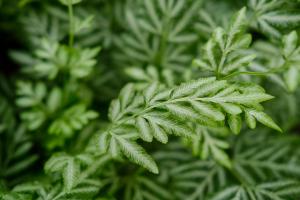Are Water Plants Safe?
Water plants are becoming increasingly popular among plant enthusiasts as they offer a unique aesthetic to any aquarium or pond. However, many people question the safety of keeping water plants in their homes or gardens. Are water plants safe? Let's explore the factors that determine the safety of water plants.
The Benefits of Water Plants
Water plants have several benefits that make them worth adding to your collection. Firstly, they provide oxygen to the surrounding environment, which is essential for the survival of aquatic life. Additionally, water plants help to purify the water by removing excess nutrients such as nitrates and phosphates, which can negatively impact the pH level of the water. Furthermore, water plants serve as a natural shelter and hiding place for fish, providing them with a healthy and comfortable environment to thrive in.
Types of Water Plants
There are various types of water plants; some are safe, and others are not. In general, the safest water plants are those that are native to the region in which they are grown. These plants are already adapted to the local ecosystem, making them less likely to cause harm to the environment. On the other hand, exotic water plants may pose a threat to native plants and animal life as they can introduce diseases or compete for resources.
The Risks of Water Plants
Although water plants have numerous benefits, there are some risks associated with them. Water plants are known to be breeding grounds for mosquitoes if not maintained properly. Mosquitoes can carry harmful diseases such as dengue, Zika, and West Nile virus, making it crucial to ensure proper maintenance of water plants. Additionally, some water plants contain toxins that can be harmful to aquatic life and humans if ingested. It is essential to research a water plant's toxicity level before adding it to your collection.
Maintaining Water Plants
To ensure the safety of your water plants, it is crucial to maintain them properly. This includes selecting the appropriate plants for your environment, ensuring proper lighting and temperature, and consistently monitoring the water quality. Regular cleaning and trimming are also crucial to avoid overgrowth and promote healthy plant growth. Proper maintenance not only ensures the safety of your water plants but contributes to a healthy ecosystem in your aquarium or pond.
Conclusion
Water plants are a beautiful addition to any aquatic environment, providing numerous benefits to the ecosystem. However, it is crucial to ensure the safety of the plants and the environment by maintaining them properly and selecting native plants. By following proper maintenance procedures, you can enjoy the beauty of water plants while contributing to a healthy and safe ecosystem.

 how many times do yo...
how many times do yo... how many planted tre...
how many planted tre... how many pine trees ...
how many pine trees ... how many pecan trees...
how many pecan trees... how many plants comp...
how many plants comp... how many plants can ...
how many plants can ... how many plants and ...
how many plants and ... how many pepper plan...
how many pepper plan...
































